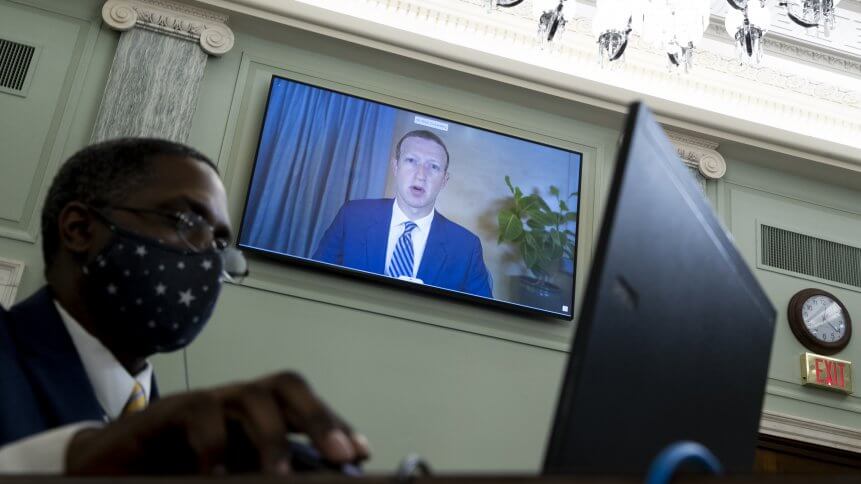Does the internet need more — or just better — regulation?

There are companies today that objectively know more about us than we do ourselves — that are able to predict our preferences and decisions while they exist only in our subconscious.
The thing is, this is no secret. While just how advanced are the data collection and crunching capabilities of Google and Facebook et al remain shrouded, as users, we are aware we are trading in our personal data for continued access to services, however much of an autonomous choice we truly have in doing so.
“This is a real issue […] there is so much data out there, concentrated in so few institutions, that they can — if they wanted to and if they were left to their own devices — could essentially dictate life as we know it, or could guide life as we know it.”
That was the musing of Cisco’s ASEAN president Naveen Menon who — if that responsibility wasn’t enough — is also an advisor at the World Economic Forum, where he consults governments and organizations at the highest level.
Naveen joined Joe Green on our Tech Means Business podcast this week in an enthralling conversation tackling one of the most poignant topics in modern society — that of the right to privacy online, and what kind of world we are heading toward if the current status quo is allowed to evolve.
The right to privacy
Internet privacy is largely an issue in the hands of the user. While there are certain regional frameworks, such as the European General Data Protection Regulation (GDPR) introduced in 2018 — and similar models introduced in the States, Brazil, Australia, South Korea, and others — the impact in protecting actual privacy is limiting.
Internet users today are becoming aware that in engaging with platforms and services, they are entering into a contract or exchange. The convenience and appeal of advanced personalization, whether it manifests in the videos we see in our news feed or recommendations for new artists on Spotify, are only delivered by us willingly sacrificing a chunk of our personal information.
Other examples are more surreptitious; not only do we pay our internet service provider each month for access to the internet, but we also enter into a contract where they can analyze or sell information about our browsing behavior to third parties if they so choose.
Data is the currency of the internet, and certain organizations are becoming incredibly rich and increasingly powerful as a result, not only in their ability to sell to us based on our interests but, much more broadly, their ability to ultimately influence our decisions.
Naveen gave an example. At his opening speech at the World Economic Forum in Davos in 2018, Israeli public intellectual and historian Yval Harari said that when at the age of 17, he thought he might be gay. Still, it took him a process of six years to come to terms with his own sexuality. And by 23 years old, he knew his sexuality for certain.
“He argued there will probably be about four or five companies and, and maybe some nations on the planet today, that could definitively tell him when he was 17 years old at a very impressionable age, you are or you are not who you are,” said Naveen.
“And that challenges the notion of identity to the deepest core of who you are.
“Currently, [this power] is in the form of enhancing preference or generating demand. But in the future, it could be down to the core of identity. Who am I? Who am I as an individual, can I be reprogrammed?”
That we are both living in and heading towards this kind of a world is a frightening — at least alarming — prospect for most of us. But, at the same time, enforcing regulation is complex, time-intensive, and can come at the cost of stemmed innovation and limiting tech’s potential for good.
“Whatever we do, we need to be aware that there are benefits, but there are significant consequences,” said Naveen. “And there are things that we are giving up about ourselves, about our companies, about our families, when institutions can potentially do harm as well as good.”
“We need to constantly be looking at regulatory frameworks and seeing if they’re fit for purpose at this point in time,” Naveen said.
“What we want is to have every year, in an ideal world, almost every instance, the right to see: do these regulatory frameworks makes sense? And can we change them?”
Listen and subscribe to Tech Means Business to listen to the full interview with Joe Green and Naveen Menon today.









